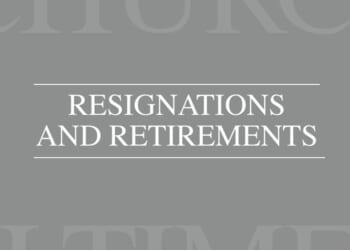(LifeSiteNews) — Pending legislation in Scotland could force Catholic nursing homes to close or be defunded, according to Bishop John Keenan. It is just one part of controversial legislation that experts and advocates warn will harm the most vulnerable people.
Scotland is currently considering legislation that would legalize so-called “assisted suicide.” This involves a medical professional giving deadly drugs to someone to kill themself. The Catholic Church is firmly opposed to assisted suicide.
Bishop of Paisley John Keenan recently warned the bill “means Catholic care homes like the Little Sisters in Greenock will now have to allow assisted suicide in their homes or face defunding or closure.”
He urged citizens to contact Parliament to voice their opposition in a November 21 Facebook post.
MSP Liam McArthur has been pushing the “Assisted Dying for Terminally Ill Adults” bill since last March. It is currently in Stage 2.
The misleadingly named legislation both opposes assistance for the dying and does not even include a provision to ensure someone is actually terminally ill, according to Bp. Keenan and other experts.
“One of the rejected amendments would have restricted eligibility to those with six months or less to live,” Catholic News Agency previously reported. “Another proposal would have required people who are seeking an assisted death to be provided with a fully funded palliative care support plan.”
“Almost [all of the] vulnerable groups in Scotland representing the disabled, elderly, and mentally ill are against the [bill] and continue to point out how it puts them at greater risk,” Bp. Keenan said earlier this month.
He stated further:
It will also not exclude a person whose primary motivation for their request is among [the] following nonterminal conditions: eating disorders; intellectual disabilities, including but not limited to [Down] syndrome; mood disorders, including but not limited to depression; anxiety disorders; the receipt of any disability or sickness-related benefits, including but not limited to Adult Disability Payment, or any equivalent welfare payment; loneliness or social isolation; financial hardship or low income; feelings of being a burden to others; poor or unsuitable housing conditions; any other mental health condition or developmental disorder that is not a terminal illness.
Care Not Killing, a medical dignity advocacy group, has expressed similar concerns.
“Assisted suicide is inherently dangerous, but there is no need for Scotland to have the most permissive and unsafe legislation in the world,” the group’s CEO, Dr. Gordon Macdonald, said. “At present, Liam McArthur’s bill poses a very real threat to those who are disabled, depressed or have life-shortening conditions but years or even decades of life to live,” Macdonald told Christianity Today.
‘Assisted suicide’ is a grave sin, Catholic Church teaches
The Catholic Church teaches that assisted suicide, and its counterpart called “euthanasia,” is inherently immoral.
“Euthanasia and assisted suicide are always the wrong choice,” the Congregation for the Doctrine of the Faith reaffirmed in 2020.
In the note, written by Cardinal Luis Ladaria, the Church affirmed “it is gravely unjust to enact laws that legalize euthanasia or justify and support suicide, invoking the false right to choose a death improperly characterized as respectable only because it is chosen.”
The statement further pointed to evidence that people who choose assisted suicide or euthanasia often do so out of pressure or a fear they are being burdened.
“Physicians themselves report that abuses frequently occur when the lives of persons who would never have desired euthanasia are terminated,” the CDF stated. “The request for death is in many cases itself a symptom of disease, aggravated by isolation and discomfort. The Church discerns in these difficulties an occasion for a spiritual purification that allows hope to become truly theological when it is focused on God and only on God.”
A report from Oregon officials confirms people choose to kill themselves out of fear of being a burden.
While “losing autonomy” remains a central concern among people who killed themselves, more than half of those who killed themselves cited a fear of being a “burden” as a reason behind their decision.
Both euthanasia and assisted suicide have also faced criticism from disability rights advocates who express concern that those with disabilities will be pressured into killing themselves or being killed.
“People with disabilities see themselves targeted by the euthanasia movement, and indeed, note that that the reasons given for permitting terminally ill people to access lethal prescriptions — a limitation on access that is not shared in most other jurisdictions where euthanasia/assisted suicide are legal — deal with issues that people with disabilities face in their everyday lives,” ethicist Wesley Smith previously explained for National Review. “The idea — their fear — is that society is coming to accept the noxious idea that life with disabilities is not worth living.”

















